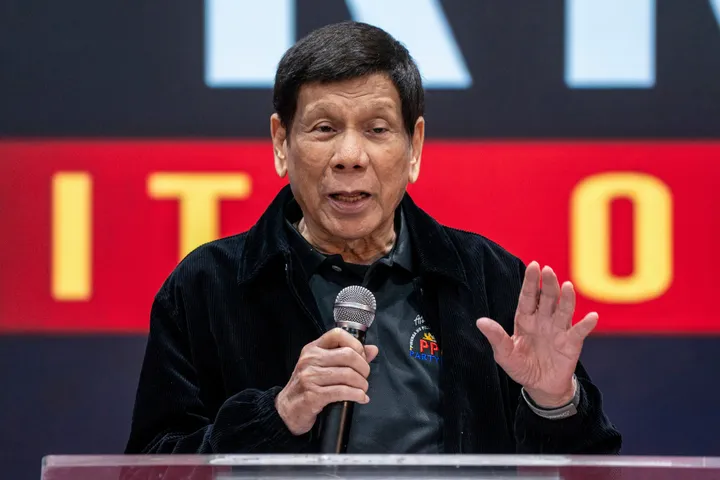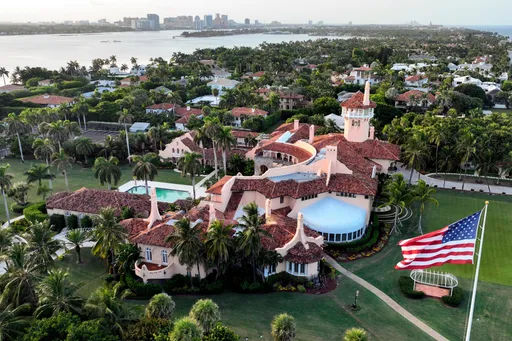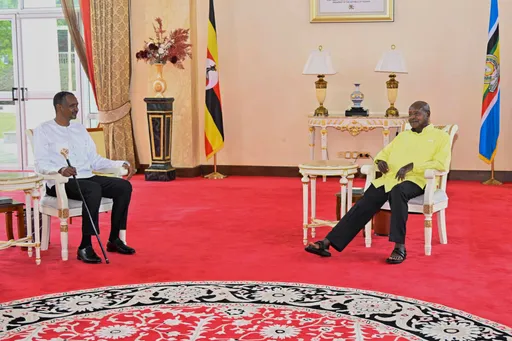With a week to go until election day, German Finance Minister Olaf Scholz has bolstered his position as frontrunner in a final three-way televised debate, with the race to succeed Angela Merkel in a dead heat.
Scholz, of the Social Democrats, turned in another solid if low-wattage performance against Armin Laschet of Merkel's conservative CDU party and the Green candidate Annalena Baerbock, coming out on top in a viewer survey after the prime-time broadcast.
A full 42 percent of viewers said Scholz, who is also Germany's vice chancellor, won the debate against 27 percent for Laschet and 25 percent for Baerbock.
"Scholz was a little punchier than in the previous debates but still the most Merkel-like and statesmanlike," the top-selling daily Bild said.
"Laschet went on the attack but had a hard time against the two opponents," who Bild said often presented a united front against the conservative.
With time running out, Laschet has been struggling to claw back a poll lead he enjoyed until July, when a series of gaffes sent his approval ratings into free fall.
As he campaigns in the long shadow of Merkel who is retiring after 16 years in power, he risks leading his bloc to its worst post-war score.
READ MORE:German elections: What are possible coalition scenarios?
'Respect'
With the number of undecided voters estimated at around 40 percent, Laschet appeared unable in the debate to land a knock-out punch or lure Scholz, 63, into a rare misstep.
Although the Social Democrats with around 25-percent support currently have a two-to-six point lead over Laschet's CDU/CSU bloc, the outcome is still considered open given likely shifts as the returns come in next Sunday.
After a strong start in the spring, Baerbock, 40, is now polling between 15 and 17 percent – a reversal widely attributed to her relative inexperience.
In a lively, substantive discussion short on real zingers, the three candidates fielded questions on growing social inequality in Europe's top economy, plans to fight the climate crisis and security threats from Islamic extremists and the far right.
Scholz has, to the frustration of the conservatives, presented himself as the rightful heir to Merkel with his moderate, cool-headed approach to governance.
However he stressed that after four terms of conservative-led rule, three of them in a "grand coalition" with the Social Democrats as junior partner, "the CDU belongs in the opposition".
Hammering home his theme of "respect" for those left behind during a period of strong economic expansion, Scholz said he would as chancellor ensure pension rates stay stable while lifting the minimum wage.
"That would create an immediate improvement for people leading difficult lives," he said of low-income Germans.
Laschet turned to his primary line of attack against Scholz, accusing his opponent of being ready to form a coalition with the radical left Die Linke party in order to cobble together a ruling three-way majority with the Greens.
"For my part I would rule out any coalition with extremists," he said.
While Scholz and Baerbock have said that Die Linke's opposition to NATO would be a red line in any coalition talks, they have not explicitly ruled out working with the party, which is polling at around six percent.
All three candidates excluded any cooperation with the far-right Alternative for Germany, currently at 11 percent in the polls.
READ MORE:Who will be the next German chancellor?
Neglecting climate 'unaffordable'
Laschet, the premier of North Rhine-Westphalia state, Germany's most populous, also tried to grill Scholz over a probe into an anti-money laundering agency overseen by his ministry.
He has called the investigation the latest example of the minister falling short of his oversight duties in a series of recent financial scandals.
Scholz, who will face a parliamentary inquiry on the issue on Monday, sharply rejected the accusation, saying he had introduced a series of reforms to fight money laundering and corporate fraud.
Baerbock zeroed in on the Greens' flagship issue of climate protection, saying both of the ruling parties had failed to address the issue with the necessary urgency because reforms were purportedly too expensive.
"Not protecting the climate is what will be most expensive in the end – it's unaffordable," she said.
READ MORE: Merkel's party clinches last German regional vote before general elections























